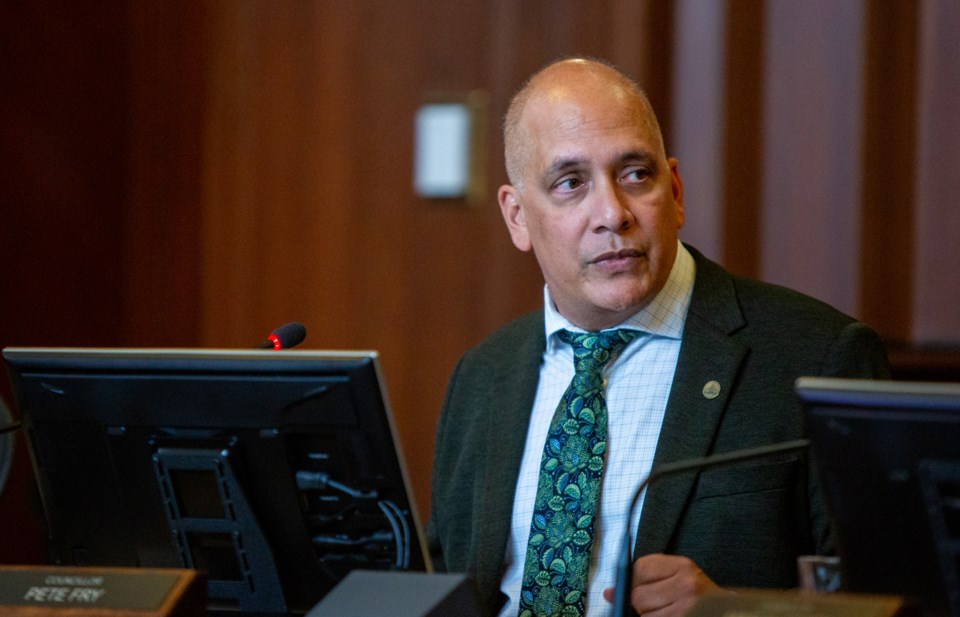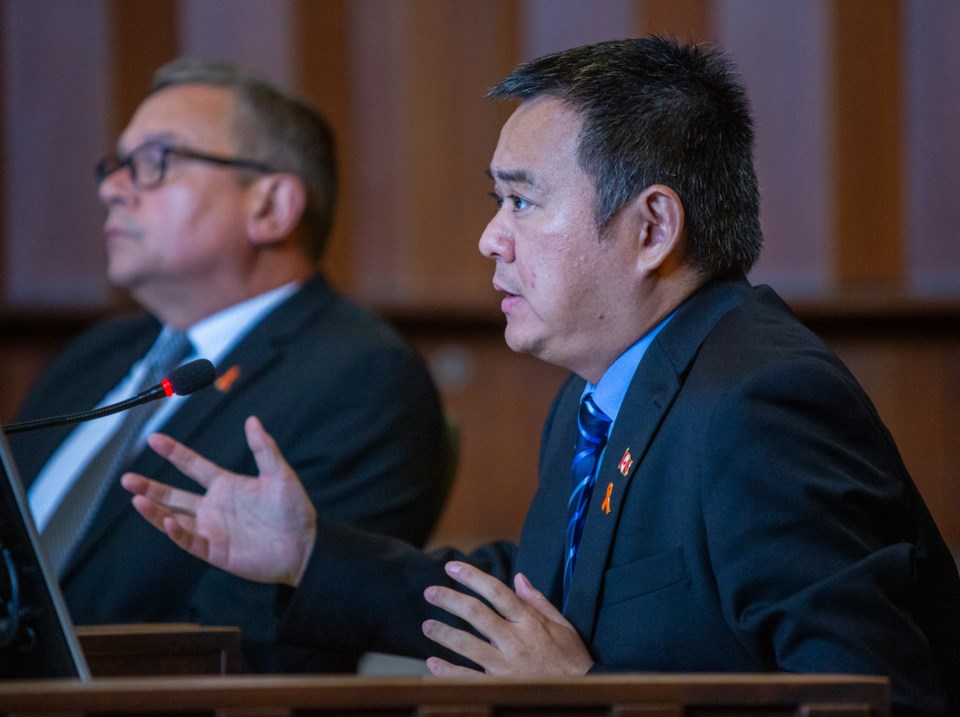Vancouver councillors from two different political parties plan to introduce separate motions Wednesday that call for a lobbyist registry at city hall.
Green Party Coun. Pete Fry and ABC Vancouver Coun. Lenny Zhou say a registry would provide more transparency for citizens about who is lobbying politicians and for what reason.
But Fry and Zhou have different views on how best to set up a registry.
Fry wants a voluntary registry modelled after what was set up in Surrey in 2008, while Zhou believes the provincial government should oversee a municipal registry.
“I totally support the idea of provincial lobbyist registry applying to local governments, but I just don't see it happening anytime soon,” said Fry, noting his experience as the Metro Vancouver area representative with the Union of BC Municipalities (UBCM) indicates to him the path to get there would be “a complicated undertaking.”
Fry said there tends to be “a little bit of a resistance to any kind of heavy handed provincial oversight of municipal business” at the UBCM level. That said, UBCM delegates endorsed resolutions in 2017 and 2019 calling on the province to establish some form of registry.
“I don't even know that it's necessarily a slam dunk, even if the province was interested,” he said.

Land use development
In Surrey, the registry was put in place to provide citizens with access to information about persons who attempt to influence decision-making via paid lobbyists in relation to land use development activities.
Lobbyists voluntarily file a form with the city clerk’s office that includes the date they qualified as a lobbyist, full name, business phone number and business address, and the lobbyist’s employer (if applicable), with business phone number and address.
The lobbyist must also state the nature and purpose of the employer’s business, the client’s name, business phone number and business mailing address, and the nature and purpose of the client’s business.
The development application number and description of the proposal or project for which the lobbyist was retained to represent the client must also be included.
Fry said the City of Vancouver’s own research shows there is minimal cost to the city clerk’s office in Surrey for the administration of the registry. As such, the City of Surrey does not have a line item in its budget for the lobbyist registry.
But no sanctions or enforcement mechanisms are tied to the registry.
“I would suggest an opportunity to explore how sanctions might work, but that probably involves the Vancouver Charter…so in the meantime, we can still have a voluntary registry that has no enforcement capacity, but at least gives a little bit of the transparency that I think people would like to see when it comes to how the business of the city is conducted,” Fry said.
Zhou said his desire for a registry should not come as a surprise to Vancouverites, noting it was a promise in ABC Vancouver’s platform in the 2022 election campaign.
He said Tuesday that he hadn’t discussed with Fry about combining their motions, and will wait to see what happens on the floor of council at Wednesday’s meeting.

'Makes more sense at the provincial level'
Zhou wants the UBCM to renew its call on the provincial government to establish a municipal lobbyist registry. In addition, he wants the UBCM to explore the creation of a working group to develop a clear set of goals for a registry.
Zhou noted in his motion that the province stated to the UBCM that it will need “a clearer understanding of what local governments hope to achieve through a municipal lobbyist registry to ensure that an approach is taken that meets those intended outcomes and meets the needs of any local government interested in having a lobbyist registry.”
To date, Surrey and Kelowna (established in 2023) are the only local governments in ÎÚÑ»´«Ã½ to set up lobbyist registries. More recently, in May 2024, Port Moody city council considered a motion to establish a registry, but a majority vote killed it.
“I agree with a voluntary registry, but I think it will be more efficient, more effective for the province to do it,” said Zhou, noting it would erase the need for each municipality to set up their own registry.
“I think it makes more sense at the provincial level to have a very standardized process across the province for all municipalities. It'll be much easier for the lobbyists, and it'll be much more transparent to the public, as well.”
Currently, Vancouver councillors post their calendars online, where citizens can review the politicians’ appointments and meetings. It’s not always consistent and leaves citizens with little or no information about a person meeting with a councillor, or the purpose of the meeting.
“Right now, you have to go through every single detail on our calendar to figure out which one is the lobbyist, which one is not,” Zhou said. “But with this registry, under the supervision of the provincial government, it will be even more transparent and much more clear as to who is lobbying the elected official.”
Wednesday’s council meeting was scheduled to begin at 9:30 a.m.

